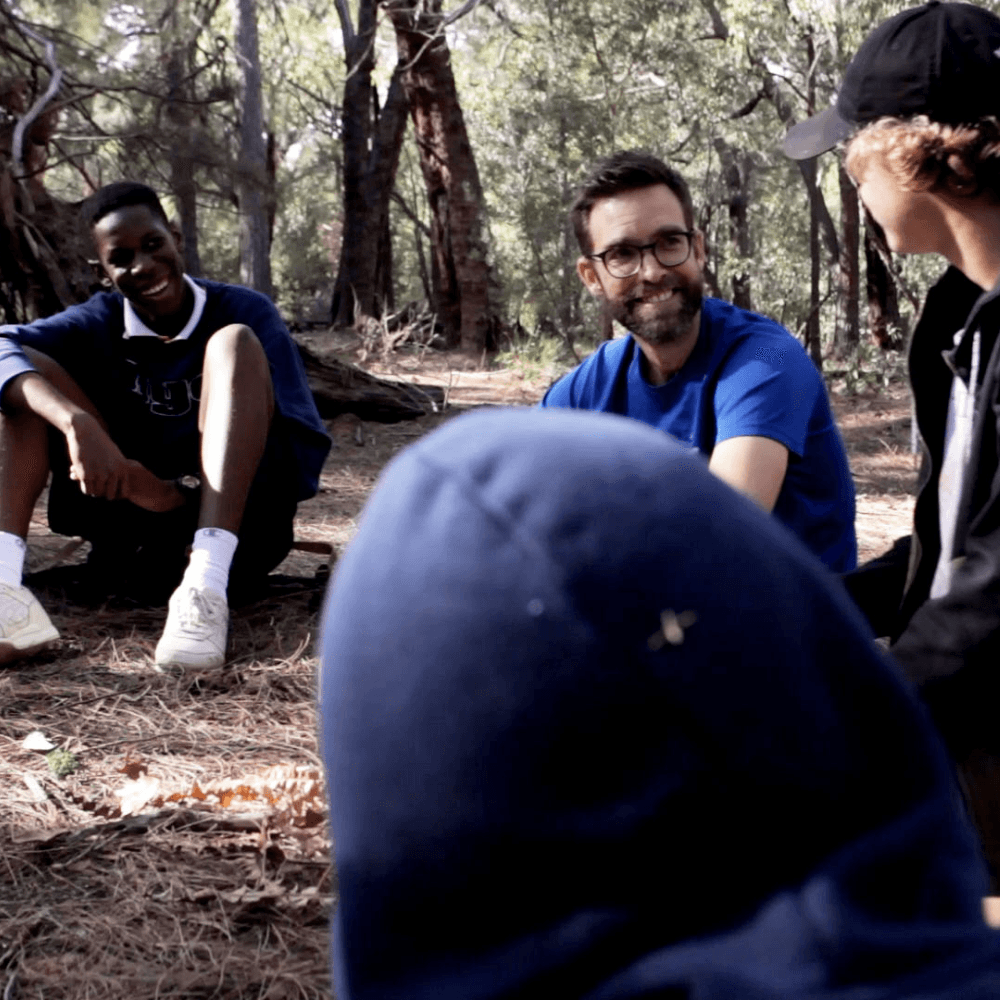When was the last time your teen went a full day without their phone?
It’s 7:30 p.m., and you glance across the lounge room at your teenager. The TV is playing, but they’re hardly paying attention—eyes glued to their phone, thumb scrolling endlessly through TikTok. You gently try to start a conversation, asking how their day went. The response is vague, distant; their attention is caught somewhere between the videos looping on their phone and the dialogue on the TV.
This isn’t a rare moment—it’s become the norm. Yet, beneath this familiar image lies an uncomfortable truth: constant connectivity quietly takes something precious from young people. It steals their ability to fully focus, their emotional resilience, and even their mental clarity.
Technology itself isn’t the enemy. Screens have opened doors to learning, creativity, and vital social connections. But as with anything, it’s about balance. When screen time becomes screen overload, the impacts extend far beyond just distracted conversations.
So, what exactly is lost when screen use becomes excessive—and more importantly, what could young people regain by intentionally stepping away and reconnecting with the real world?
The Cognitive Cost of Constant Connection
Excessive screen time—especially multitasking between devices—can quietly diminish a young person’s cognitive abilities. Research indicates that prolonged digital multitasking can lead to decreased attention spans, weakened memory, and difficulty managing complex tasks.
A study found that heavy media multitaskers showed diminished ability to filter distractions, maintain deep focus, and efficiently switch between tasks—skills critical for learning and productivity.
Continuous partial attention, described as a state of consistently splitting focus between multiple tasks, can make deep concentration nearly impossible. It’s not that young people can’t pay attention; it’s that their environment rarely asks them to engage fully with just one thing at a time.
The Emotional Toll of Endless Scrolling
Alongside cognitive impacts, too much screen time can contribute significantly to emotional stress. Social media platforms often amplify feelings of anxiety, comparison, and low self-esteem, particularly among teenagers.
According to recent research, excessive screen usage correlates strongly with symptoms of anxiety, depression, and emotional distress among adolescents5. Social media’s tendency to highlight curated versions of peers’ lives can subtly erode young people’s confidence, leaving them feeling inadequate or isolated.
Furthermore, constant notifications and digital interactions can increase stress and lower overall emotional resilience, making it harder for young people to handle life’s inevitable ups and downs.
Nature’s Powerful Antidote: Attention Restoration
Fortunately, stepping away from screens into nature provides a scientifically supported pathway to restore cognitive and emotional balance.
Attention Restoration Theory (ART), developed by environmental psychologists Kaplan & Kaplan, describes how natural environments help replenish depleted cognitive resources, improving attention and reducing mental fatigue. Nature’s subtle, non-demanding stimuli (like trees, water, or landscapes) gently capture attention without overwhelming it, allowing the brain space to restore clarity and focus.
Even short periods in green spaces dramatically reduce stress levels, improve mood, and boost cognitive function. One significant study revealed that spending just 20 minutes outdoors in a park environment significantly lowers cortisol (a primary stress hormone) and improves attention and emotional wellbeing).
Striking a Healthy Balance
At AdventureWorks WA, our mission is not to eliminate technology from young people’s lives—it’s to help restore balance by intentionally incorporating screen-free experiences into their routines.
We know young people rely on digital devices, and we recognize the incredible educational and social opportunities technology offers. Our goal isn’t “no screens”; it’s ensuring screens don’t dominate every moment.
What Students Gain by Unplugging
When we intentionally create spaces free of digital distractions, young people experience powerful cognitive, emotional, and social benefits:
- Improved Focus and Mental Clarity: Stepping away from constant alerts allows the mind to engage deeply with tasks and ideas, improving overall cognitive function and academic performance.
- Increased Emotional Resilience: Reducing screen overload helps young people experience a broader range of emotions and develop coping mechanisms for stress, anxiety, and uncertainty.
- Stronger Social Connections: Face-to-face interactions and shared experiences in nature encourage empathy, communication skills, and genuine friendships.
Our programs at AdventureWorks WA utilize immersive outdoor experiences, reflective group discussions, and guided activities—all designed to help students experience these transformative benefits firsthand.
Practical Tips for Reducing Screen Overload
Schools, parents, and young people can proactively manage screen time and cultivate healthier digital habits by:
- Setting Clear Boundaries: Creating intentional periods during the day without phones—during meals, study times, or before bedtime.
- Encouraging Mindfulness: Practicing brief moments of mindfulness or meditation can greatly improve emotional regulation and reduce anxiety driven by digital overload.
- Scheduling Regular Nature Breaks: Intentionally spending short periods outdoors, even 15–20 minutes a day, helps reset attention, reduce stress, and improve mood.
Final Thoughts: Restoring What’s Lost
Excessive screen time doesn’t just steal minutes—it subtly robs young people of their capacity for sustained focus, emotional stability, and authentic connections. Yet, the solution isn’t about demonizing devices or banning screens entirely. It’s about helping young people find meaningful balance.
When teens periodically unplug, they discover spaces where deeper learning, genuine relationships, and stronger emotional health can thrive. Nature-based learning isn’t about escaping technology; it’s about enriching life beyond the screen.
At AdventureWorks WA, we invite educators, parents, and communities to work alongside us in restoring that balance—ensuring young people aren’t just connected digitally, but genuinely connected to themselves, their peers, and the natural world around them.
Let’s reclaim what’s lost and rediscover what truly matters.
Learn about our programs here.
Sources.
Digital Device Usage and Childhood Cognitive Development: Exploring Effects on Cognitive Abilities
Digital Multitasking and Hyperactivity: Unveiling the Hidden Costs to Brain Health
Our Most Serious Threat, And We Refuse To See It
https://www.forbes.com/sites/eliamdur/2024/03/29/our-most-serious-threat-and-we-refuse-to-see-it/
The Impact of Social Media on the Mental Health of Adolescents and Young Adults: A Systematic Review
https://pmc.ncbi.nlm.nih.gov/articles/PMC10476631/
Links Between Screen Time and Depression in Adolescents More Complex Than First Thought
The Acute Psychological Effects of Screen Time and the Restorative Potential of Nature Immersion Amongst Adolescents: A Randomised Pre-Post Pilot Study
https://www.sciencedirect.com/science/article/pii/S0272494423002311
What is Kaplan’s Attention Restoration Theory (ART)?
https://positivepsychology.com/attention-restoration-theory/
Minimum Time Dose in Nature to Positively Impact the Mental Health of College-Aged Students, and How to Measure It: A Scoping Review





